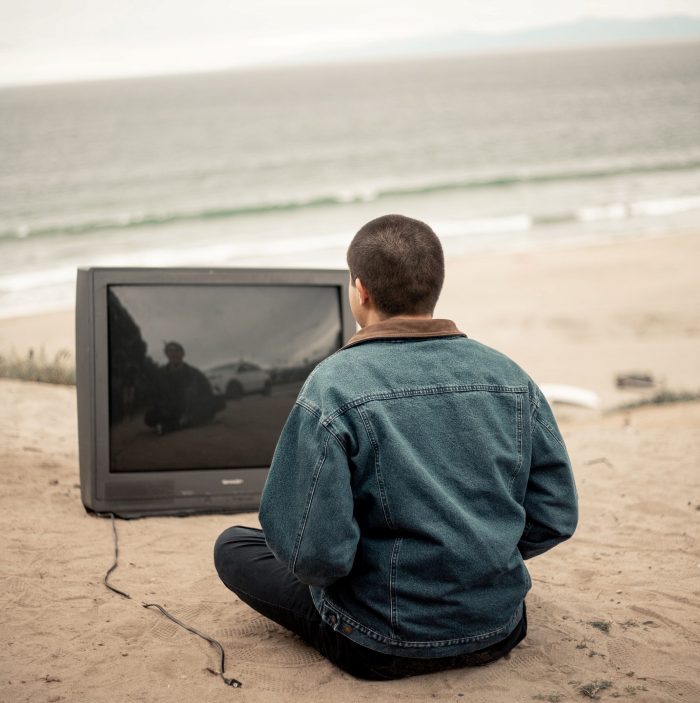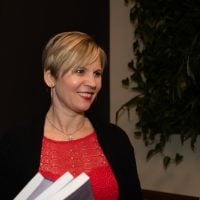“Please, at least leave us alone in our living rooms. Let me have my toaster and my TV and my steel-belted radials and I won’t say anything. Just leave us alone.”
This quote from the 1976 movie “Network” touches something primal inside me. A fear response, perhaps. An ache for peace, more likely.
This quote mirrors the way I felt in the wake of the 2016 American presidential election, when my bones rattled with fear and anxiety about the future of the planet and of humanity.
There are no valid arguments anymore about the reality of climate change. It is, as they say, “settled science.” But I don’t think the most important question is whether the planet can survive. The question is whether we can.
The planet will likely be able to renew itself—most likely, after it kicks us off it. If we need any evidence of how quickly Mother Nature could reconstitute herself, all we need to do is look at the data from the lockdown period. From GQ magazine:
“If there is one thing this pandemic has proven it is that human activity is the foremost cause of pollution on earth. This is proof that if we want, the human race can work together towards a sustainable future.”
The key phrase in this quote is “if we want.” It’s the only variable that matters. We have to want a clean environment more than we want our convenient lifestyles, habits, and routines. We have to want a sustainable future in such a radical way that we rethink and remake all the philosophies we currently subscribe to, including capitalism, free markets, perpetual growth, and endless progress.
But the sad truth is, we haven’t proven we want a healthy planet to live on badly enough to make hard, radical changes now. And even if we did care, we have likely crossed the rubicon.
Climate change is now a thing unto itself, like Seymore’s venus fly-trap, which we have fed and is now coming for us. We’ve awoken the beast, and the beast will get the last word.
So, that’s the bad news on climate.
Just leave me alone in my living room.
There’s bad news in politics, too. Politicians all over the world seem to have been overtaken by a fascistic, zealous, power-at-all-costs virus. In America, voter rights are being stripped away, and a horrifying 82 percent of Trump voters don’t believe Biden’s win is legitimate. There is no reason to expect the Republicans will ever respect the outcome of an election again.
And Democrats are surely no heroes. They’re passing the buck on a narrow window of opportunity to pass real reform and legislation. Democrats, too, are owned by lobbyists and corporate interests that weigh heavier on their minds than the futures of our children.
Please, just let me have my toaster, and maybe a little creamer for my coffee…
We are in the Kali Yuga stage of the world. “Kali” represents destruction, and “Yuga” represents age. In Savage Grace: Living Resiliently in the Dark Night of the Globe by Andrew Harvey and Carolyn Baker, they define the Kali Yuga as such:
“Kali Yuga represents the collapse of every kind of inner and outer coherence, and personal and institutional forms of compassion, concern, and justice. Everything revered in previous ages and all forms of checks and balances within a culture are systematically and terrifyingly undermined and eventually destroyed.”
All the signs of Kali Yuga are here:
>> The exploitation and destruction of nature.
>> The increasing injustice, inequality, dehumanization, and separation.
>> The lack of morality, conscience, shame, and good judgment on behalf of those in power and, even more dangerously, the glorification and promotion of this kind of personality.
>> The failing of institutions that are supposed to be truth-tellers and justice-dolers, including the media which kowtows for ratings rather than doing their jobs with fierce integrity.
>> We have lost our sense of community. We don’t believe in helping one another anymore. Each to their own.
I won’t say anything. Just leave me alone with my TV, and my wine…
Human beings are ill-equipped to deal with times such as these. We have been raised to view our world through a lens of good-versus-evil, and then have been told that we are the good guys and we always win over them.
Separation, not unity, was built into our psyches.
We’ve been trained through both entertainment and education to believe that even in the 11th hour a hero can save us, or the tide can turn. So, what happens when people who are conditioned to believe that everything will be okay in the end need to wrap their heads around the impending catastrophes before us?
Scapegoating, shirking responsibility, and finger-pointing are nothing more than business as usual.
We have two routes:
First, we can withdraw from the world, giving in to that inner voice that whispers, “Please, just leave me alone.”
We can tell ourselves that any appearance of “normalcy” is evidence that things will be okay.
We can insulate ourselves in an imaginary bubble where the only things we pay attention to are: What’s the weather going to be like today? When’s the ballgame on? You know, normal things.
We can stop following the news (good, honest news), and demand that sites like Elephant Journal stop shoving their politics down our throats. We can close our blinds and lock our doors.
Please, just leave me alone in my own house.
We can do all of these things, trying to immunize ourselves against the events of the world. Maybe we believe that if we just get small, quiet, and compliant enough, nothing bad can touch us.
But in pulling away and refusing to make a stand, we make ourselves complicit in the destruction of the world.
No one can be left alone, not in reality. We can pretend that we’re not part of the whole, but we can’t truly separate from the reality of our interconnectedness. We are the microcosm of the macrocosm.
The greatest mantras, rooted in Hermeticism, remind us of this fact: “All is one. As above, so below. As within, so without.”
So, we’re either complicit in the coming destruction, or we collaborate in its rebuilding. When it comes to the biggest issues of our time, there is no third option.
Collaboration begins with listening to a different voice inside us. One that’s rooted deeper. One that reminds us of our interconnection.
We were made for this time.
Kali Yuga will bring increasing darkness and chaos. In the darkness, it is hard to find our way. Hard to navigate. But humans only seek truth when things go dark. It’s then we go inward. It’s then we ask questions and do our shadow work. Then, we finally reach out to others.
And when we do that, the same darkness that causes pain and suffering can be our turning point.
Most of our best healing is done in darkness, not light. Out of darkness and chaos, light and a new cosmos (order) can emerge.
We must support each other.
That’s the overarching purpose of the Kali Yuga—to break down our egos and knock down the walls and barriers between us and the truth, between us and each other, between us and our deepest selves. To reveal lies. To make us pay our karmic debts.
We’re not here to be complicit in the planet’s (or, more truly, humanity’s) demise. That’s no one’s soul purpose—at least, not the purpose of anyone reading this article.
We are stronger and more resilient than we think we are.
Maybe we think it will cost too much to keep our hearts and eyes open, but we don’t remember that this is our soul’s purpose: not some job, or some lifestyle attainment, but actively collaborating, uniting, and helping one another.
A purpose of uniting in times where division is encouraged and even celebrated. A purpose to spread healing and compassion in a time when hatred and fear are given cover under fear of the “other.”
What else matters, in the end, than what we’ve done while we were here—especially in difficult times? Anyone can reach out and connect when the future is bright. We need to do it now, even as the light dims.
No amount of pretending or hiding away will save us. We may not be on the front lines of the impact of climate change and creeping authoritarianism, but it’ll come for us all someday.
If we’re not actively participating in the planet’s and our humanity’s healing, then we’re actively colluding in its demise. Then we are conspiring with Kali, assisting her on her path of destruction.
Passivity is a choice, as is withdrawal, denial, and hiding ourselves and our voices away.
There are things we can do when we choose collaboration.
>> We can once again value and model honesty, morality, and kindness. In a time when these virtues are often considered namby-pamby, we can invest in these things more than ever.
>> We can commit to learning our nation and the world’s real history—not the bedtime stories we learned growing up.
>> We can honor the earth through celebration and ritual. We can honor each other the same way, too.
>> We can honor our bodies, our relationships, and our time.
>> We can create.
>> We can become more of who we are.
>> We can challenge paradigms and ways of thinking that cause harm and division.
>> We can confront our shadows, and in so doing, clear the path for others to confront theirs.
We are more powerful than we know.
This is our soul, and likely our sole, purpose: to collaborate with each other, to stand as one together, to fight for life until our dying breath.
In the Kali Yuga, we will all be stripped down to our naked essence.
When she turns her fiery gaze on us, we can either help fan the flames or absorb the fire into our hearts, building our resiliency to withstand the future.


 Share on bsky
Share on bsky





Read 24 comments and reply